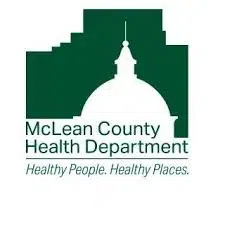In response to the ongoing opioid epidemic, the McLean County Health Department (MCHD) has taken a significant step to make life-saving medication more accessible. A new dispensing unit, offering free boxes of Narcan (naloxone), is now available to the public at their facility located at 200 West Front Street. The unit, which operates similarly to a vending machine, is accessible during the department’s regular business hours, Monday through Friday, from 8:00 a.m. to 4:30 p.m.
A Life-Saving Resource in the Fight Against Overdoses
Narcan, a nasal spray form of naloxone, is an FDA-approved medication used to temporarily reverse opioid overdoses, keeping the person responsive until emergency help arrives. With the increase in opioid-related deaths, the introduction of this dispensing unit is an essential tool for reducing fatalities by making the medication more readily available to the community.
The key benefit of this initiative is its anonymous and barrier-free access. While Narcan is available without a prescription in some places, many people still hesitate to seek it out due to stigma or fear of judgment. By providing free Narcan through this easily accessible unit, the MCHD aims to ensure that more people can have it on hand in case of an opioid emergency.
Amy Hopper, Behavioral Health Program Manager at MCHD, highlighted the importance of accessibility:
“A person who is experiencing an overdose would clearly be unable to dispense Narcan to themselves, so the idea is to have Narcan at home, in the car, at work or anywhere that would make it immediately available for someone to administer in case of a suspected overdose.”
The Impact of the Opioid Epidemic
Opioid overdoses have become one of the leading public health crises across the country. In Illinois alone, opioid-related deaths have soared. In 2016, there were 1,888 opioid overdose deaths in the state. By 2022, that number had risen to 3,261. Additionally, non-fatal overdoses continue to burden hospitals, emergency departments, and the broader community. Many of these overdoses are linked to prescription pain medications such as oxycodone and hydrocodone, as well as illegal drugs like heroin and fentanyl. Fentanyl, in particular, has become an increasingly dangerous substance due to its high potency, and its presence in counterfeit pain pills has led to a rise in fatal overdoses.
Recent data from the Drug Enforcement Administration (DEA) shows that six out of ten fentanyl-laced counterfeit pills contain a potentially lethal dose. This reality underscores the importance of having Narcan readily available to respond quickly in the event of an overdose.
Legal Protections for Narcan Administrators
Illinois has enacted laws to encourage individuals to act swiftly in overdose situations without fear of legal repercussions. The Illinois Drug Overdose Prevention Program Law empowers non-medical individuals to administer naloxone, and the Good Samaritan Law ensures that those seeking medical help for an overdose won’t face criminal liability for possession.
However, McLean County Coroner Kathleen Yoder emphasized that Narcan only temporarily reverses an overdose, and immediate medical attention is still critical:
“Far too many times people mistakenly believe that Narcan will stop an overdose completely, and they do not seek emergency medical help. As a result, many people still die from an overdose. Calling 9-1-1 is an important step that cannot be ignored.”
How the Narcan Dispensing Unit Works
Each box dispensed from the new unit contains two doses of Narcan nasal spray and instructions on how to use it. In addition to the medication, the unit also provides educational materials, including graphics that demonstrate how to recognize an opioid overdose and administer Narcan. Residents can take photos of these instructions for future reference.
This initiative is part of the larger effort by the state of Illinois and McLean County to combat opioid overdoses and provide resources to those in need. For more information on how to use Narcan and how naloxone saves lives, residents can visit the McLean County Health Department’s website, which also provides links to helpful videos and the state’s overdose action plan.
In the face of the devastating impact of opioids, this new dispensing unit at MCHD offers a simple, yet potentially life-saving resource for the Bloomington community.







